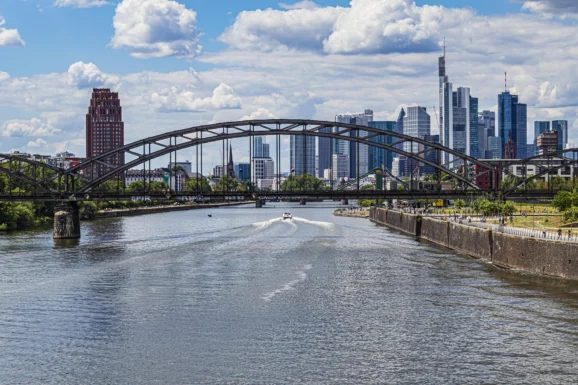How to avoid a ‘predictable’ disaster

By looking at the tragic fire at Notre Dame, Jérôme Barthelemy of ESSEC Business School examines how, through effective communication and focused priorities, some tragedies are entirely preventable
It is a sad fact of life that disaster does strike, and can never be fully planned for. Sure, we can implement measures that limit the impact, but we can’t really prepare for the worst in every single scenario of life. But can some disasters be prevented? Whilst some disasters are recognised as an act of God, others are caused by people.
My recent research delves deeper into this area. In the instance of the disastrous fire that destroyed much of the famous Notre Dame Cathedral in Paris, I explored the responsibility of management and what they could have done differently in the time leading up to the fire.
Thankfully, nobody was harmed in the inferno that raged for nine hours, but the world mourned an iconic landmark that to many was emblematic of Paris itself. Whilst some theories about the fire blamed faulty wiring or an unextinguished cigarette, I wanted to know more. I wanted to know what senior management could have done to prevent such a tragedy – and I identified two categories of error, known as “active” and “latent”.
Unfocussed minds
Active errors are defined as human failings, whilst latent errors concern the results of poor decision-making within the organisation. For example, one latent error concerned a faulty alarm system inside Notre Dame. Although it was reported numerous times, and staff were told to address the problem, the fault remained and may have led to the fire. Instantly, it becomes apparent to me that fire safety was not a priority for management.
From my early research, I was able to surmise that the fire at the Notre Dame is what I would call a “predictable surprise.” This means, that whilst events, such as this, might come as a surprise to management – they shouldn’t. The issues that might lead to problems had been highlighted by staff, yet management chose to ignore them.
When we look at what constitutes a “predictable surprise”, it would be any event that occurs when leaders or decision-makers are made aware of issues that could potentially have major consequences, but don’t react – and then tragedy strikes. Management teams might appear shocked, but we must wonder if it is really that much of a surprise when precautions are not implemented, allowed to fail, or abandoned altogether.
So, how can we distinguish between the genuinely unexpected and the predictable? When a disaster occurs, there are four characteristics of a predictable surprise:
- Leaders are notified that a problem exists, such as the faulty alarm issue at Notre Dame, but take no action.
- Concerns are raised by a wider network of people, but leaders still do not act. In the case of Notre Dame, security guards had raised concerns over the alarms and a shortage in staff, but still no action was taken.
- Leaders realise that fixing the problem would have a significant cost in the short term. Due to this, they will often delay taking action, or they look for cheaper and inferior options.
- Leaders understand that fixing the problem involves challenging the status quo. For example, the architects at Notre Dame ignored the importance of fire detection and rapid human intervention on the basis that such efforts would “mutilate” the roof frame.
Recognise what’s important
From these four stages, a series of simple actions can be taken in order to prevent such tragedies occurring at all. The key lies within effective communication. Management needs to focus more on listening to their staff’s concerns, and consider their priorities.
Too often, people focus on less important things, such as profit, aesthetics, or what people think. If they considered the value of their employees’ lives and livelihood above all else, it could actually save a lot of money and trouble in the future.
When concluding my research, it seemed clear that leaders have a responsibility to identify the problems, acknowledge them, respond to them, and ensure that their response to the problems remains effective. Leaders ultimately need to stay on top of things, addressing small red flags, even when there are no major issues as such. By communicating openly and consistently with staff, much bigger problems can be averted in the long run. Predictable surprises are the result of inaction, of small yet significant events not being responded to before a tragedy occurs.
Unfortunately, not all tragedies can be avoided. But, by following the steps outlined here, many can be prevented. Furthermore, in the aftermath of disasters that do occur, management should take the opportunity to learn. Whether the disaster is out of the blue or one of human error, a willingness for managers to learn could set the tone for future instances. If staff members see their leaders acting on problems, they are likely to feel confident in raising issues.
Outside of stopping disaster in its tracks, management teams who properly listen to their teams when they highlight concerns will also see a boost in company morale, as well as hopefully halt preventable “surprises”. Naturally, this benefits not only the leaders who will continue to profit from their business, but their employees also, who, at the very least, will not be left scrambling for new jobs when disaster strikes.
Whilst the original Notre Dame Cathedral cannot be replaced, lessons have been learned. The French Ministry of Culture have audited other French cathedrals. They have checked their electrical safety and helped the cathedrals’ caretakers to install fireproof partitions and sprinkler systems.
So, it is fair to say that the fire at Notre Dame has demonstrated how small mistakes and communication errors can amplify into unimaginable tragedy. It’s a cruel lesson indeed, but hopefully one that will be learned from.
About the Author

Jérôme Barthelemy is a Professor of Management and Strategy at ESSEC Business School.














